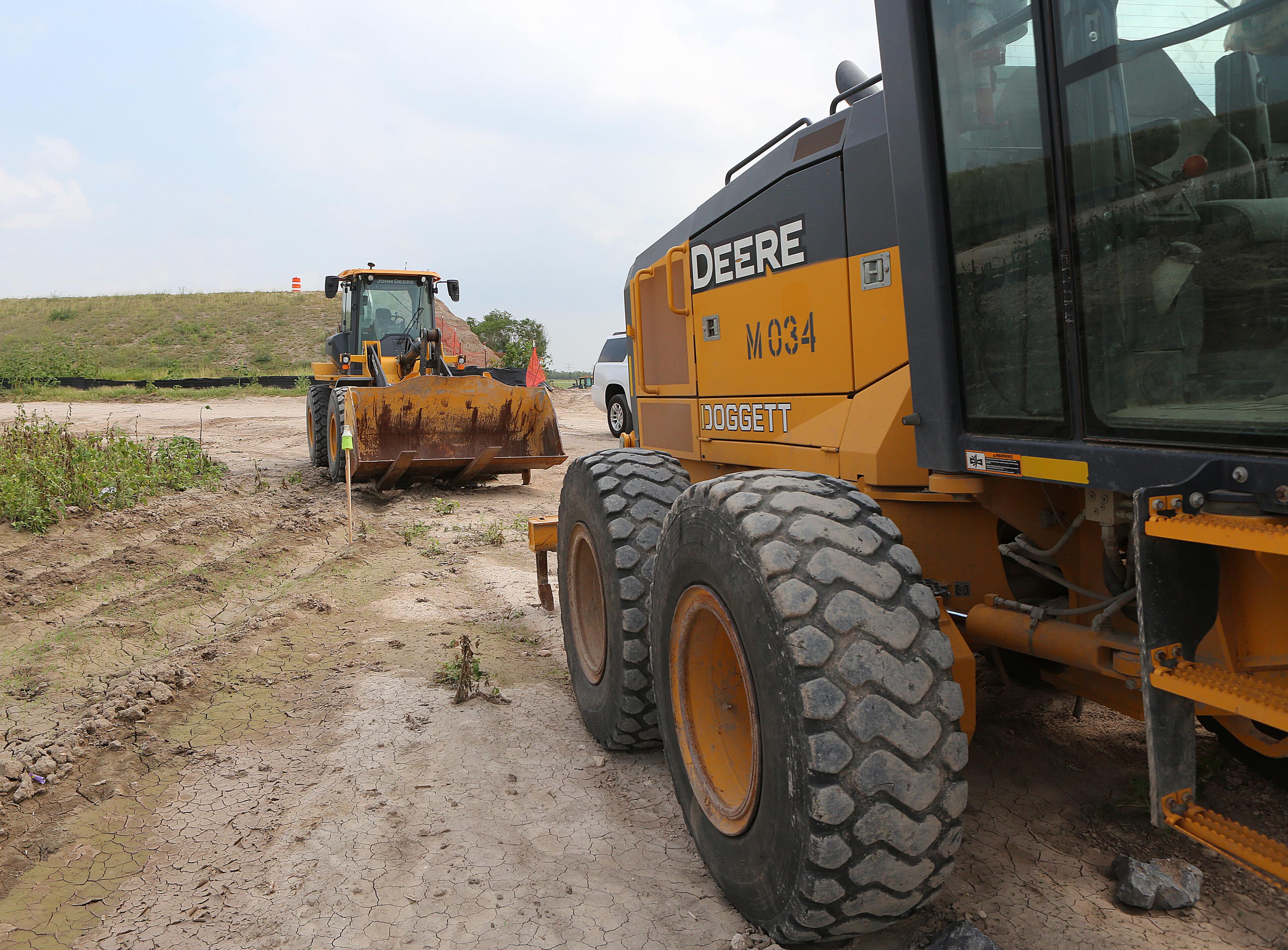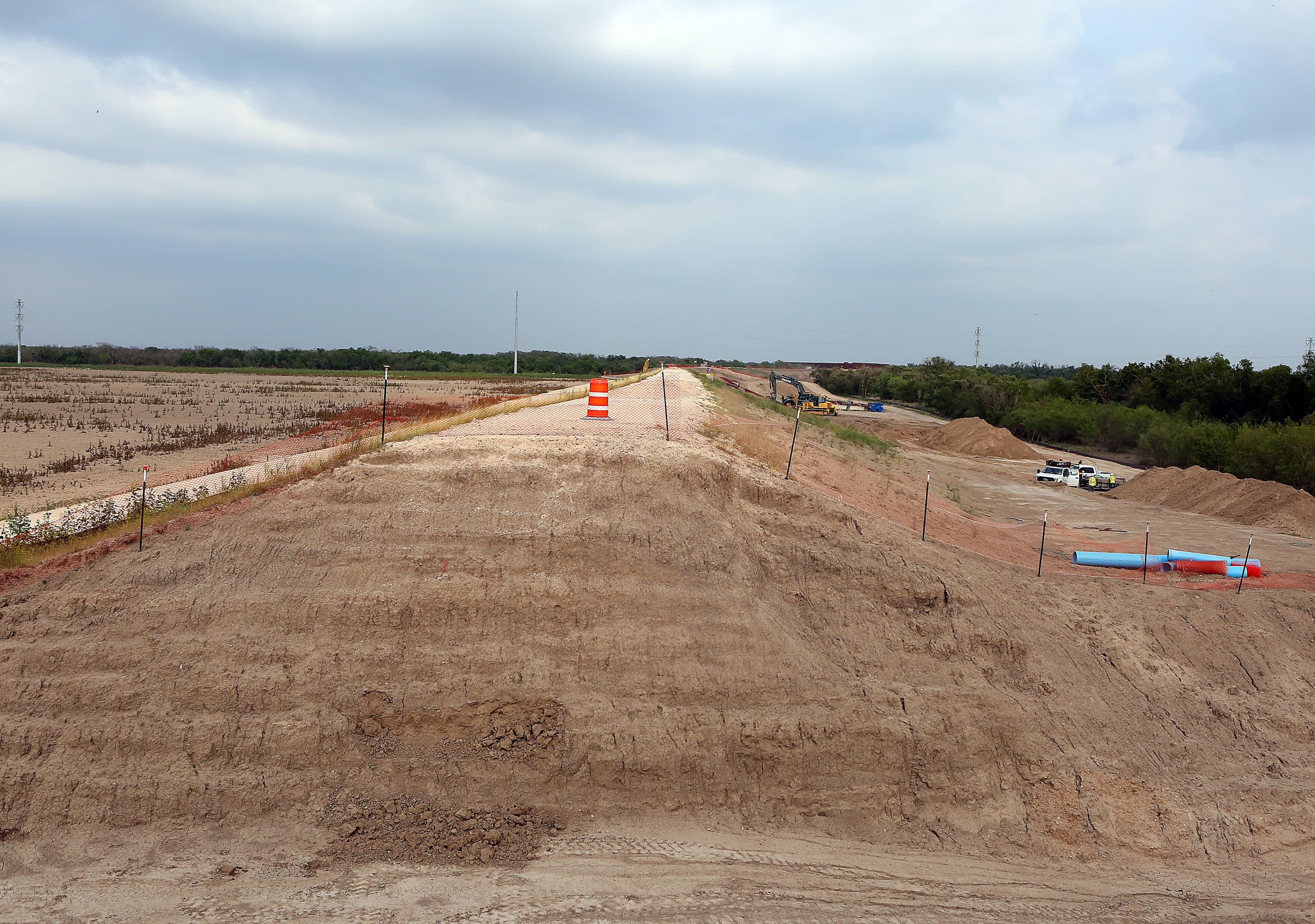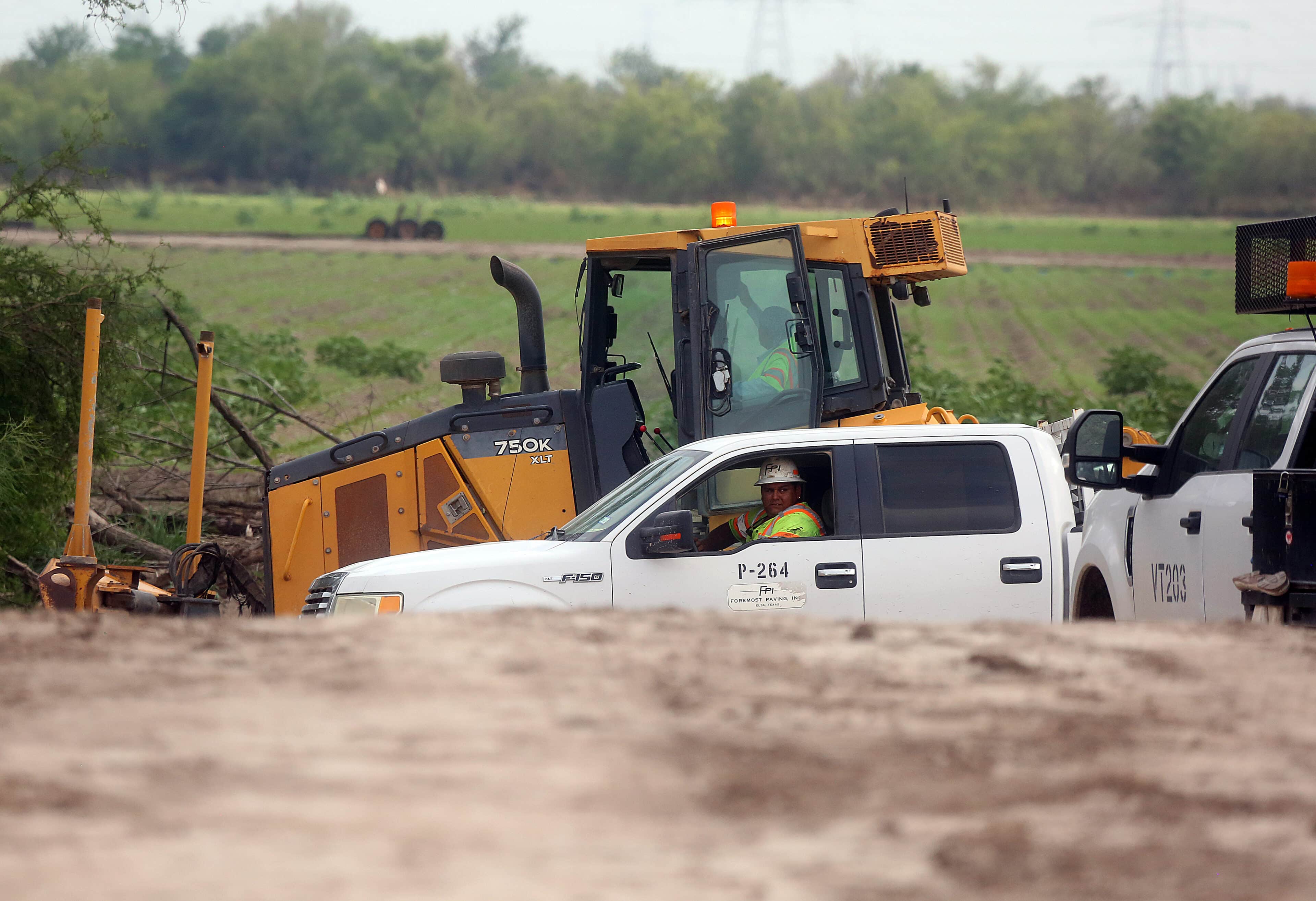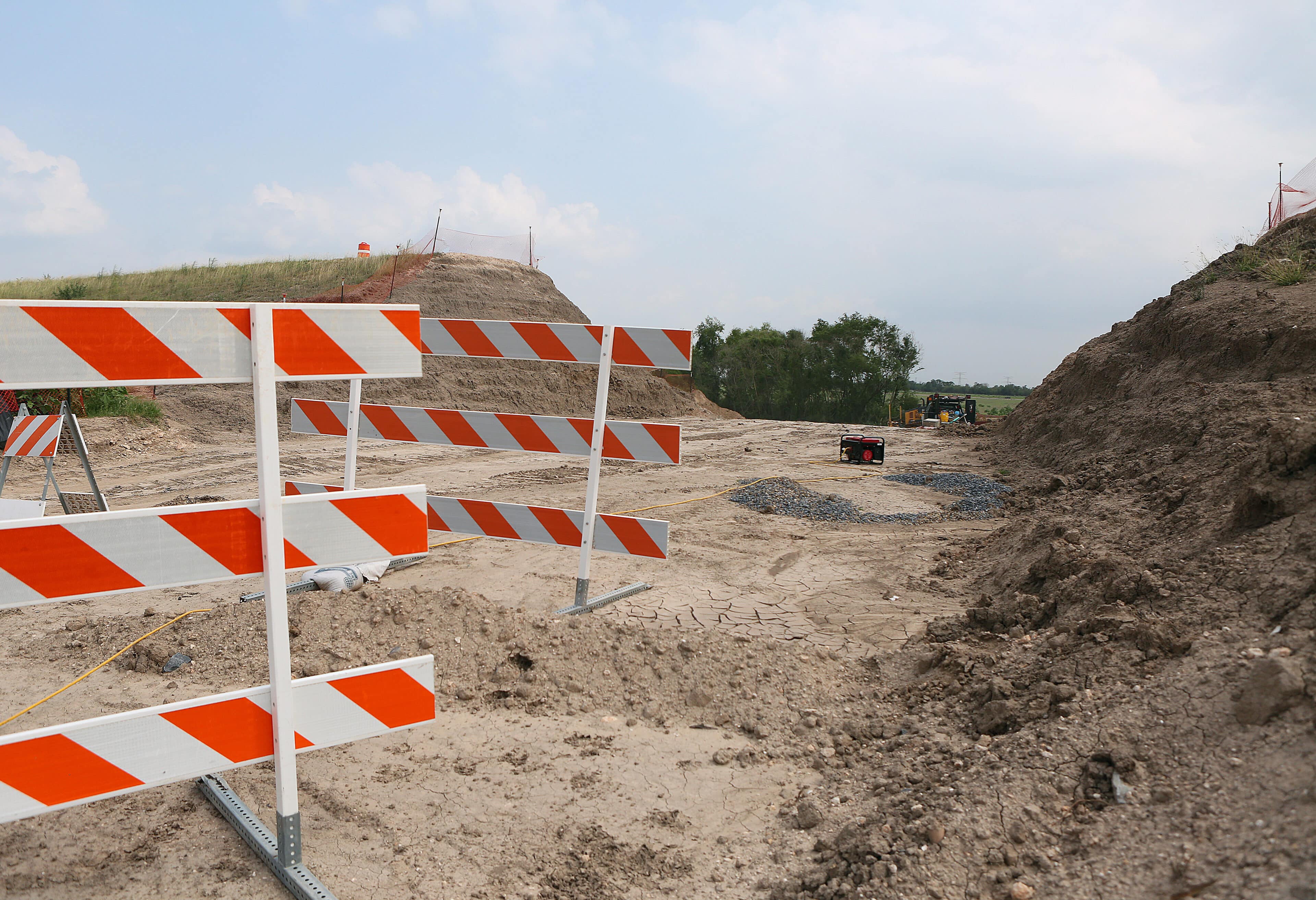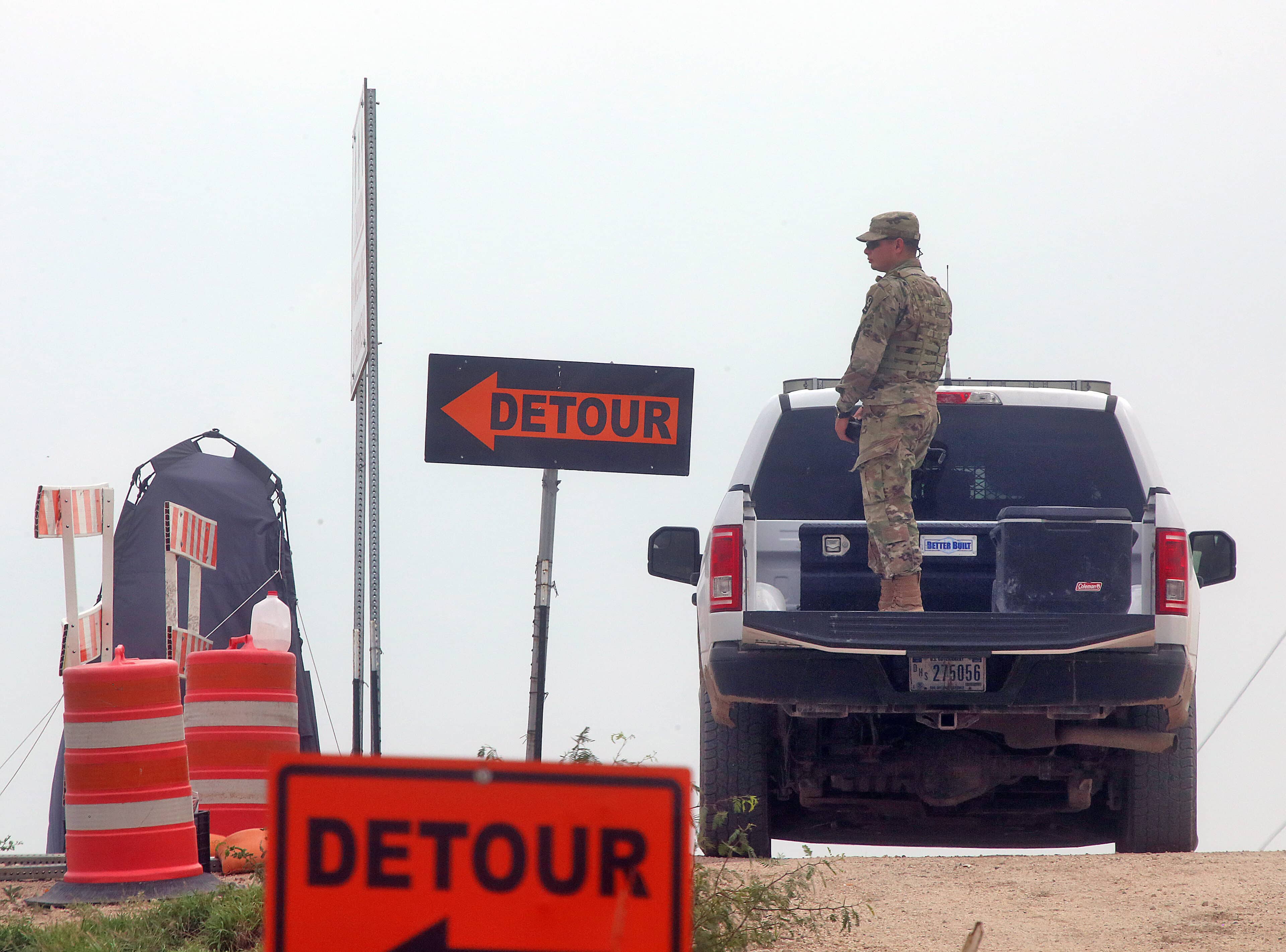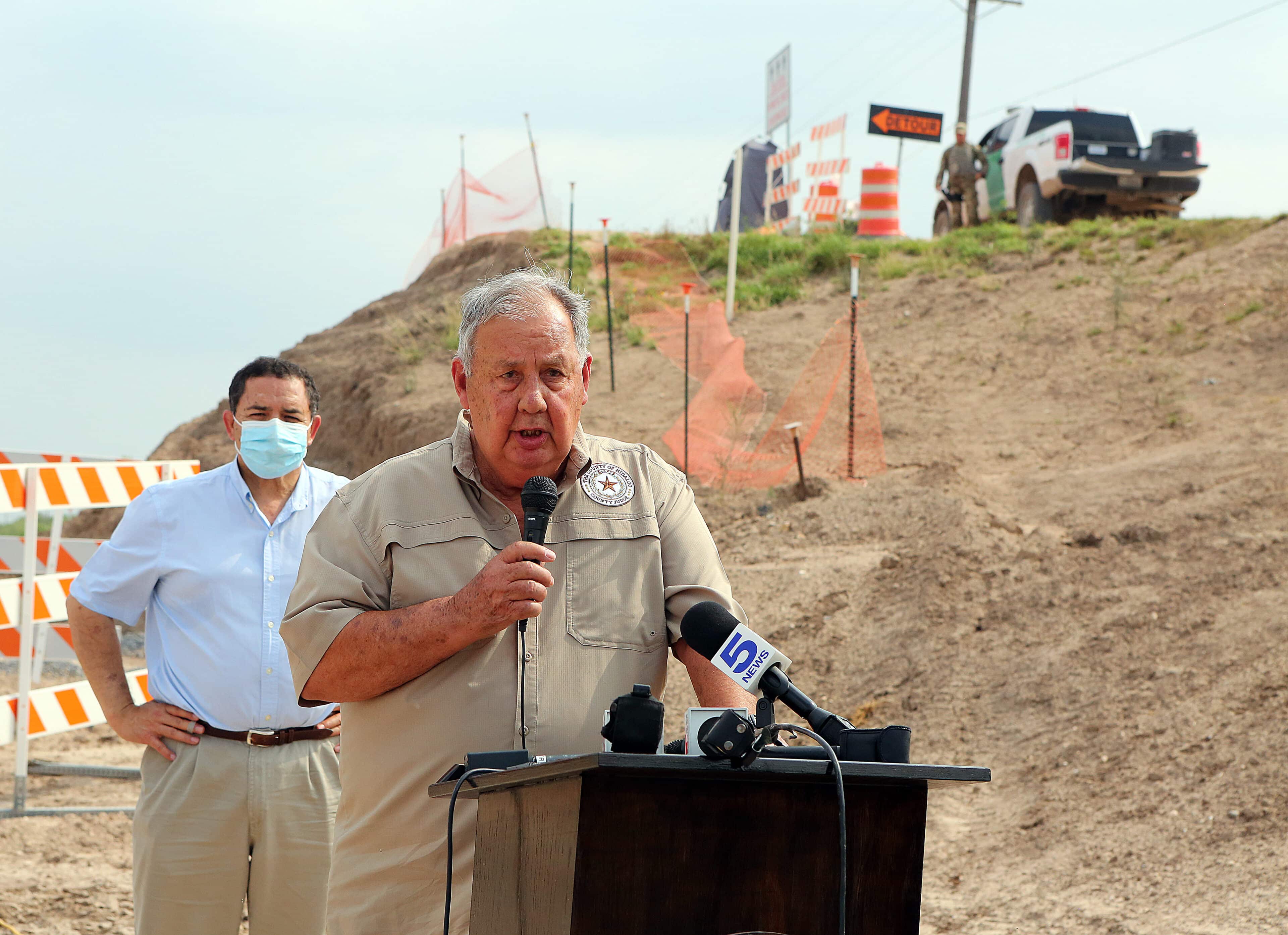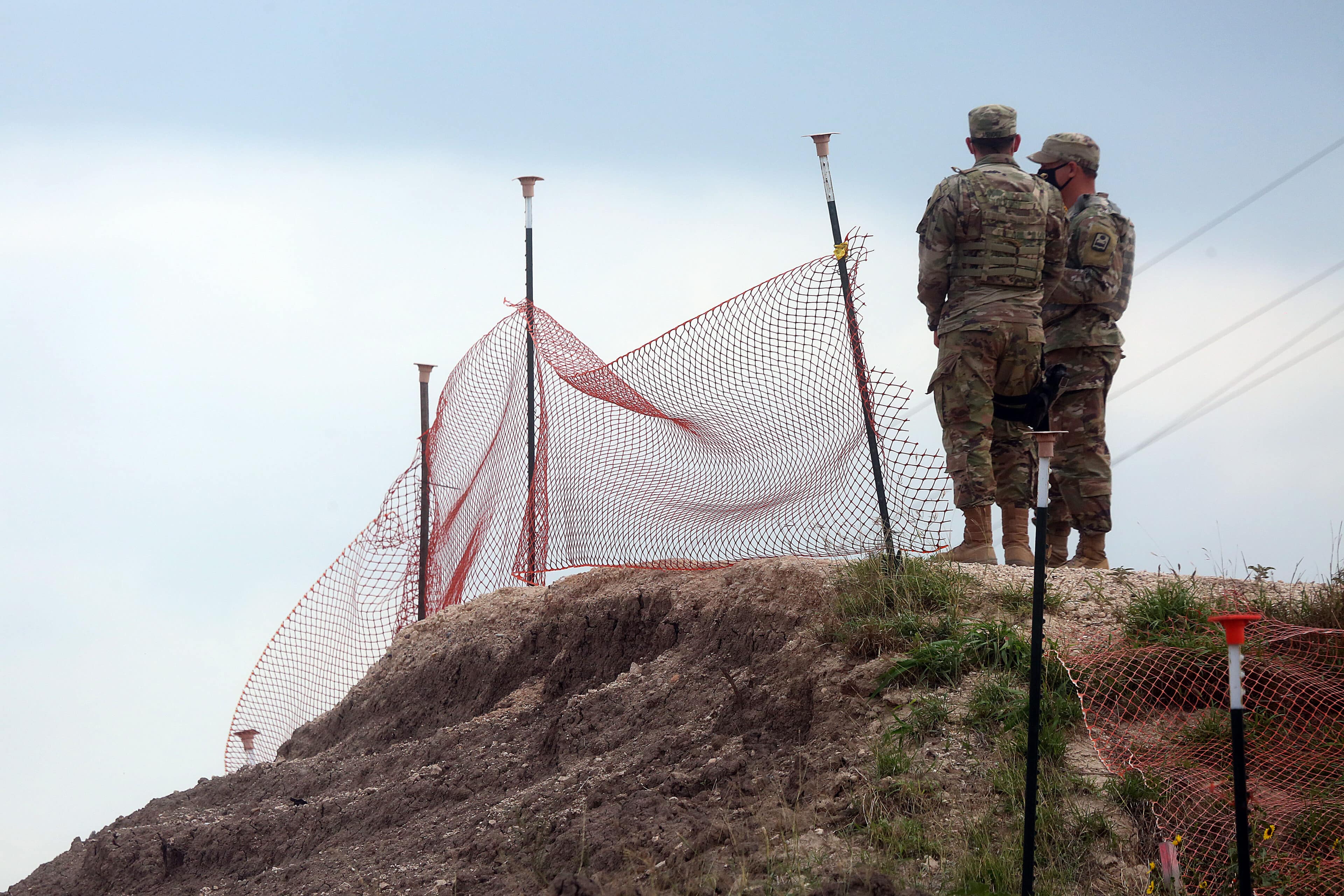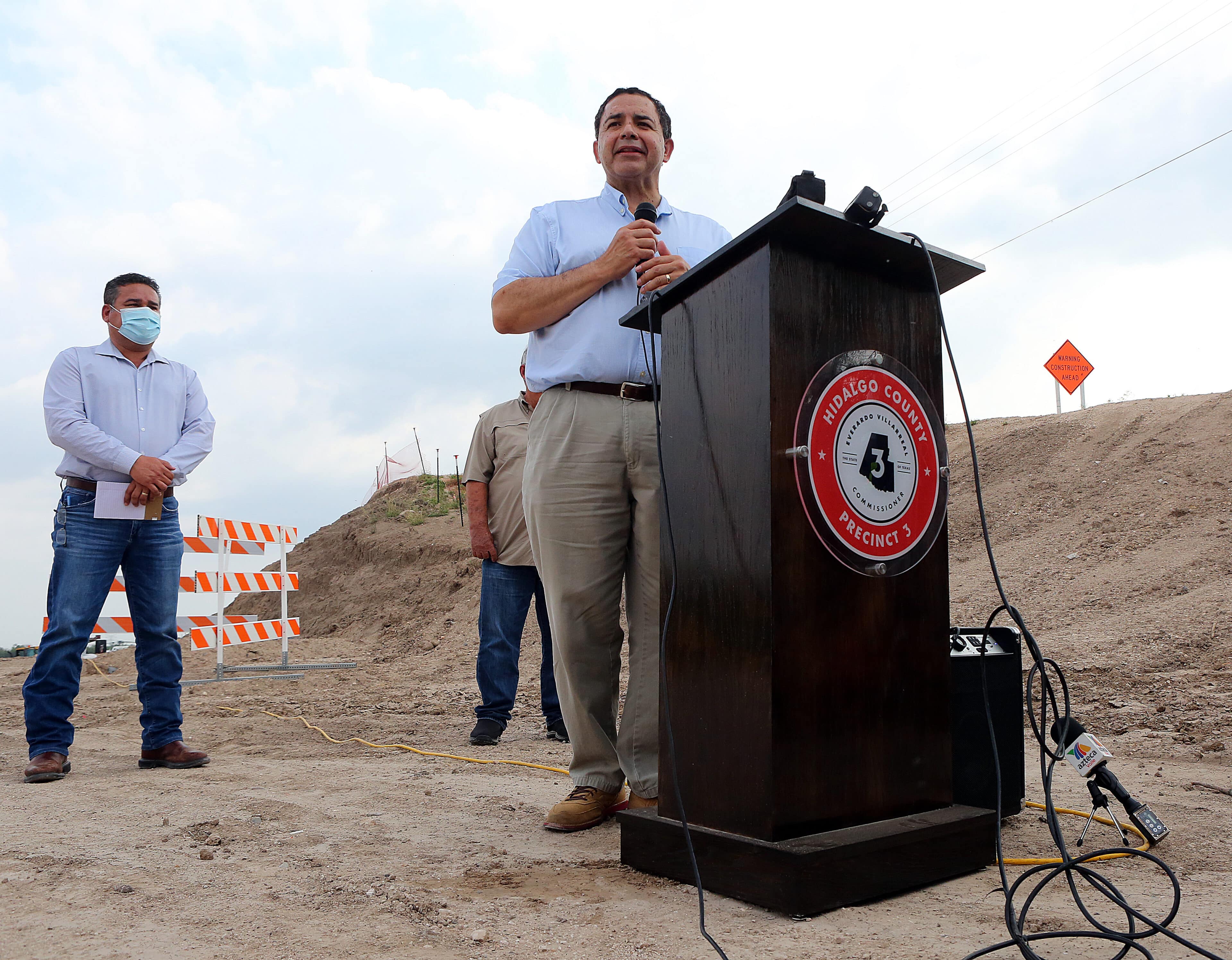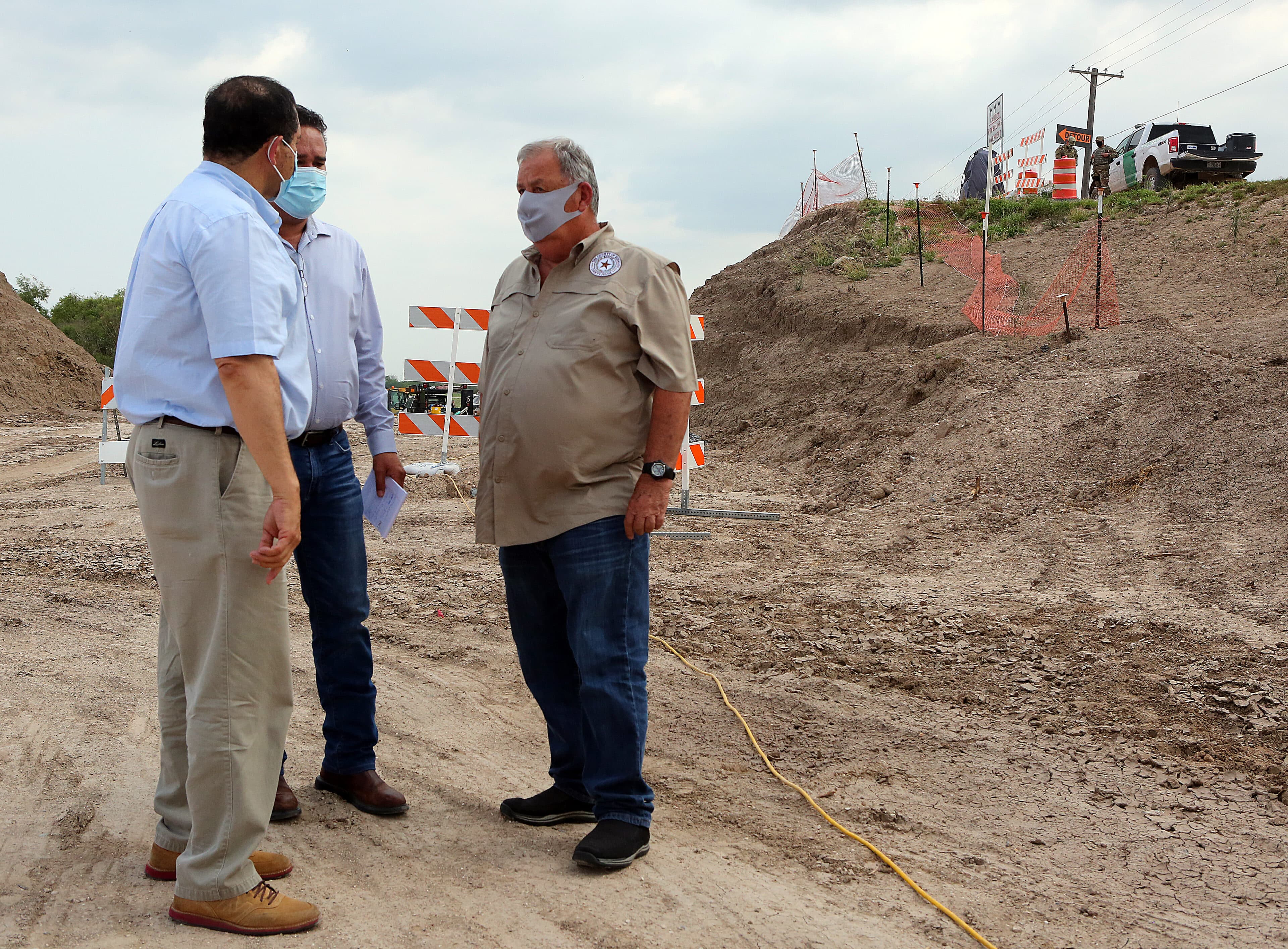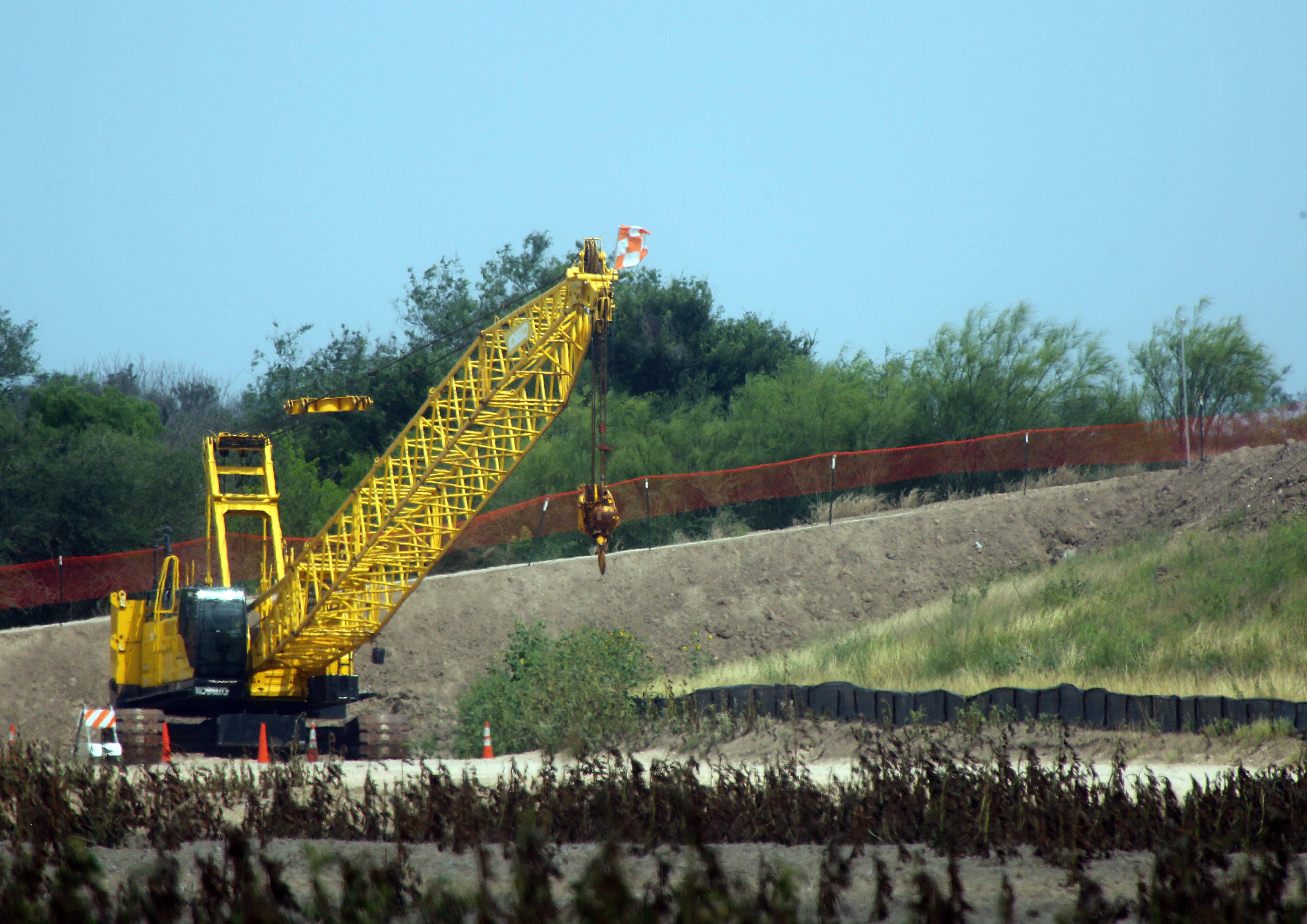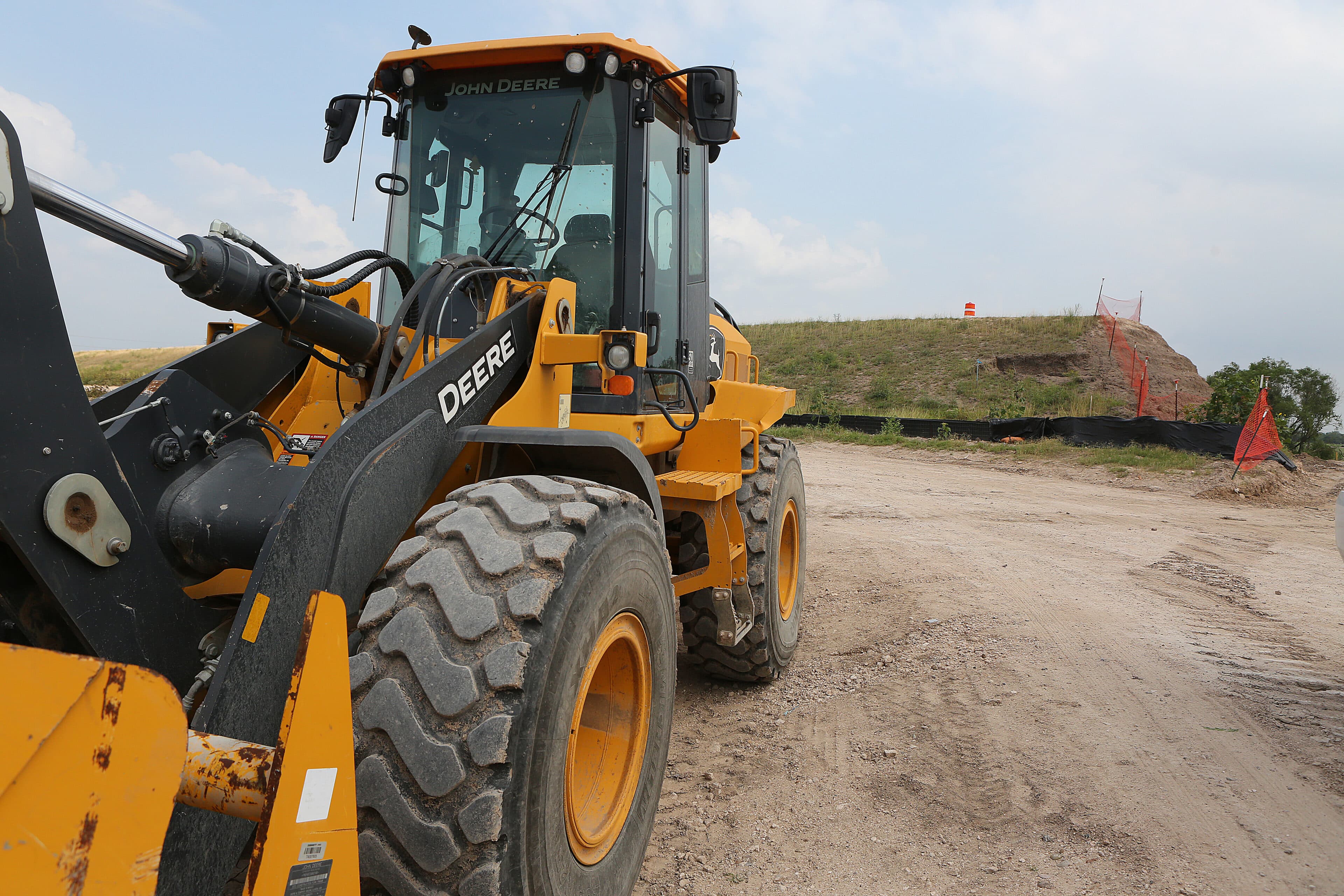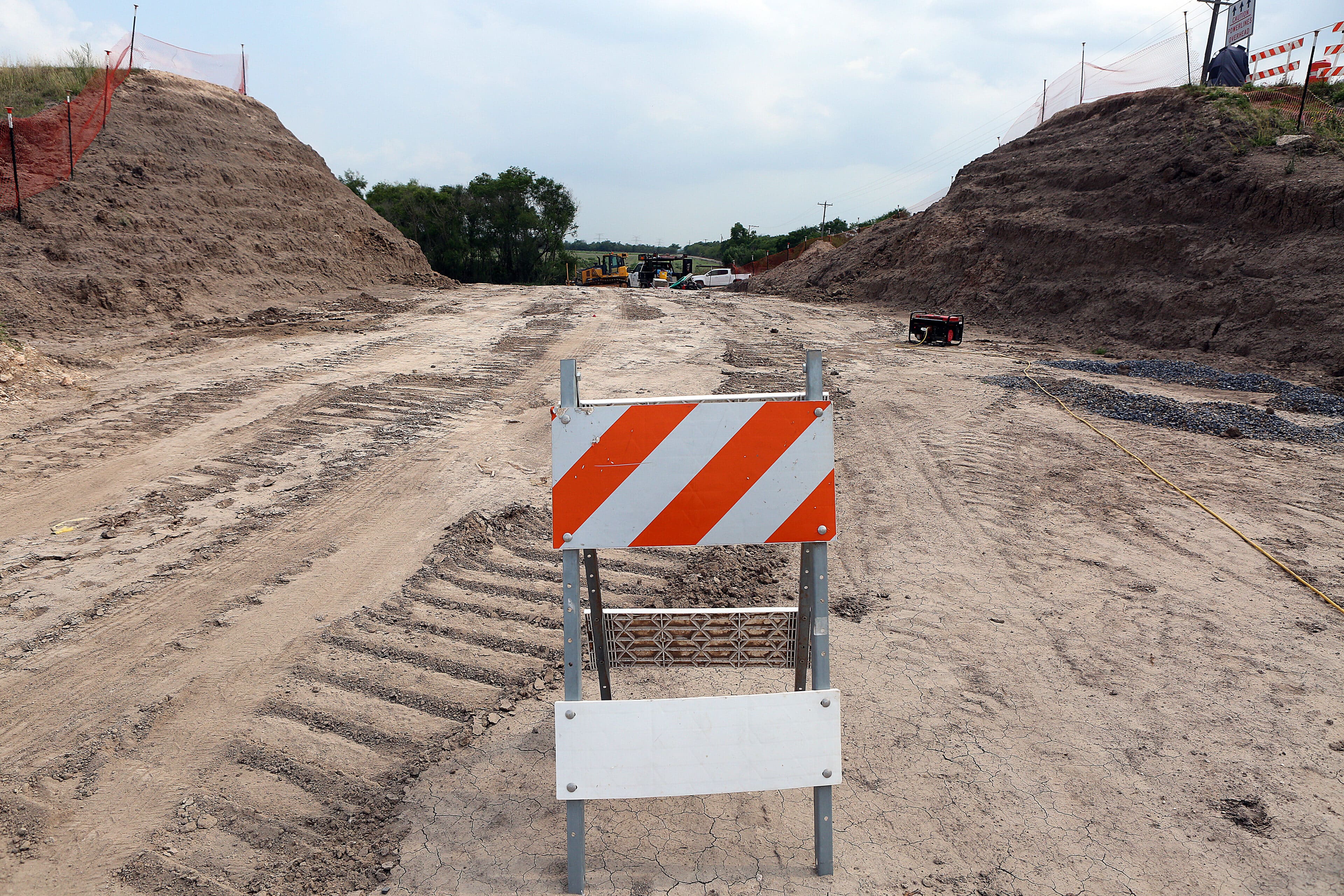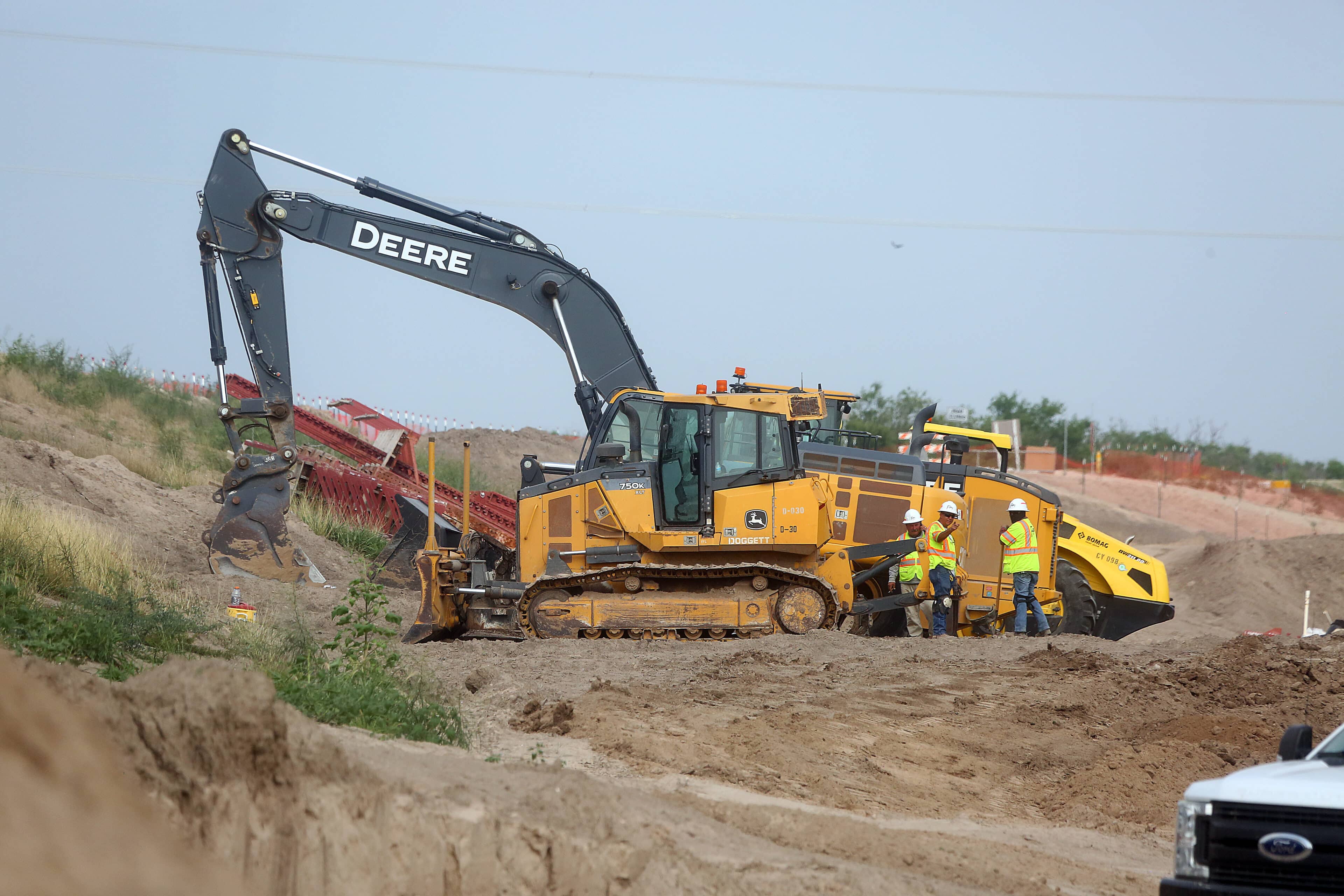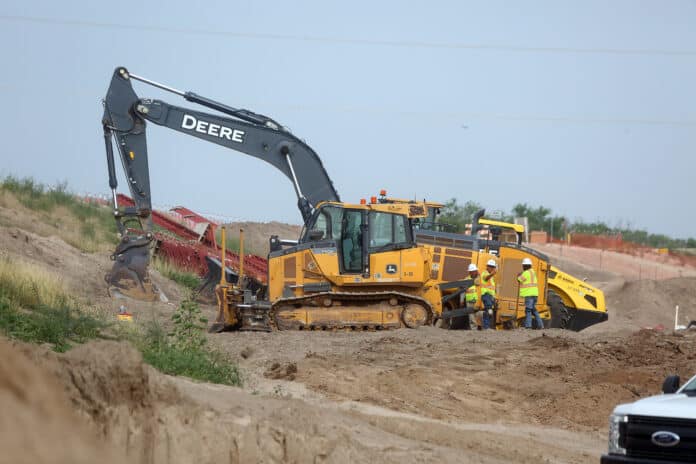
ABRAM — For about two weeks, county officials sounded the alarm over breaches in the levee system caused by construction of the border wall under the Trump administration. But after several phone calls and letters, contractors finally began repairing the breaches Tuesday with the expectation the work will be done in time for hurricane season in June.
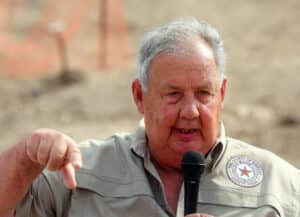
Bulldozers were already at work when U.S. Rep. Henry Cuellar announced the welcomed news at a news conference he held near the worksite with Hidalgo County Judge Richard F. Cortez and Precinct 3 County Commissioner Everardo “Ever” Villarreal.
DHS pledges to fix damaged levees, but no timeline yet(Opens in a new browser tab)
“A couple of companies are already working on putting the levees back and that is good news to hear,” Cuellar said, all three having just disembarked a helicopter from which they surveyed the work being done at multiple sites.
The work on the levees is expected to take about two to three weeks, a vastly faster estimate than officials were initially led to believe.
About a week-and-a-half ago, Cuellar set up a phone call with the commander of the Southwestern Division of the U.S. Army Corps of Engineers, leaders of the Galveston and the Fort Worth office, and Cortez and Villarreal.
Federal judge, Hidalgo County officials still seeking answers on levee repairs
At that time, they were told it would take two to four weeks just to bring the contractors back to the work site and then another six to nine months to repair the levees.
“At that time, I think all three of us were in shock at this bureaucratic — with all due respect to the Army Corps — but a bureaucratic answer that it would take six to nine months to put it back again,” Cuellar said, adding that, at that point, they asked that their concerns and unhappiness over the situation be made known to Secretary of Homeland Security Alejandro Mayorkas, Secretary of Defense Lloyd J. Austin III and the White House.
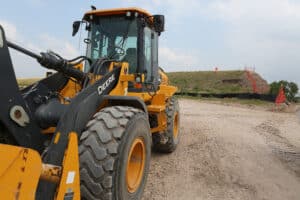
Then on Friday, Acting Secretary of the Office of Management and Budget Shalanda Young notified Cuellar that DHS would be announcing that same day that they would begin working on the levees.
Before they did so, though, Cortez announced the county, itself, would be taking the situation into their own hands in an effort to restore the infrastructure before the start of hurricane season in June.
Hidalgo County officials push Biden administration for levee fix
“ This is very simple: the federal government does not seem to have the same sense of urgency that I have,” Cortez said hours before the DHS announcement. “So I have asked county work crews and some independent contractors to begin to assess the process and the costs of fixing four major breaches in our protective levee system that were caused by federal contractors.”
Cortez said the county would seek reimbursement and added that he was in touch with the county’s legal counsel regarding the county’s ability to conduct emergency repairs on federally controlled property.
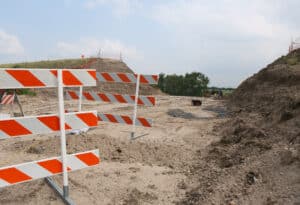
Cuellar said he appropriated up to $10 million in funds last week in case the county needed to be reimbursed for the repairs.
That contingency turned out to be unnecessary once DHS made the announcement hours later.
In addition to the levee in Abram, where the press conference was held, other areas where the levee had been shaved off are near Chimney Park in Mission, and south of Alamo on Tower Road, according to Ricardo Saldaña, Hidalgo County emergency management coordinator.
The work will be federally funded, but Cuellar said he did not know whether it would be paid for by the Army Corps of Engineers or by DHS.
Failure to fix those levees before the start of hurricane Season on June 1 would have put 250,000 people and their property at risk of flooding.
After Tuesday’s news conference, the county judge said he hadn’t received legal clarification on whether the county could indeed conduct work on federally-owned property, but said the county would have moved forward on the work anyway if the federal government hadn’t.
“I would have risked it anyway. I would rather ask for forgiveness than permission because we were in a dire situation,” Cortez said, noting that the region is a delta, an area prone to flooding which is why the levees are necessary to begin with.
“To me, if they sued me, they sued me, but we would have to take action. I would have taken action,” Cortez said.
Villarreal stressed how severely a flood would impact those in his precinct, many of whom are low-income.
“I could not let this happen, being in my fourth month in office,” Villarreal said. “The majority of our people do not have insurance, so a flood not only would impact their lives, but would also impact their properties. And I cannot have that happen to my people in Precinct 3.”

